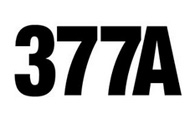The following statement was issued by the two applicants, Gary Lim and Kenneth Chee, on Nov 30:
Gary Lim and Kenneth Chee, partners for 15 years, filed the challenge following a recent landmark ruling by the Court of Appeal in *Tan Eng Hong v Attorney General* (“*Tan Eng Hong*”) that clarifies that the very existence of an unconstitutional law in the statute books may suffice to show a violation of an applicant’s constitutional rights.

Singapore is the only one among thirty-five advanced economies in the world that criminalises physical relations between men, and one of only four countries in East and South East Asia to do so. Though the Prime Minister stated in parliament 5 years ago that s377A would not be ‘pro-actively’ enforced, there have been cases since where individuals have been threatened and charged with s 377A by the police, which was remarked upon by the Court of Appeal.
“I don’t live in fear every day that I will get caught by the police because of my relationship with Gary but I know that s 377A labels me a criminal,” said Kenneth.
Gary adds: “While lawmakers have stated in Parliament that s 377A will not be ‘pro-actively’ enforced, this is not enough because it leaves the possibility of ‘passive enforcement’, should someone decided to make a complaint against us one day.”
In *Tan Eng Hong*, the Court of Appeal commented on the ‘very real and intimate’ injuries that were caused by s 377A and how it potentially ‘makes criminals out of victims’. The judges also raised the fact that the government’s ‘guarantee’ that s 377A will not be proactively enforced is problematic and also highlighted that police continues to issue ‘stern warnings’ to gay men in Singapore under the section.
Other important points:-
● s377A makes victims out of LGBT individuals. The possibility of arrest prevents men – and women - from contacting the police in criminal cases. For example, in cases of domestic violence, theft and even rape or abuse.
● Fewer than 5% of the people living in East and Southeast Asia live in countries that criminalise homosexuality, and Singapore stands out in this small group. Historically, the country shared a similar provision criminalising homosexuality in its penal code with India and Hong Kong based on British colonial era legislation. The latter two have since repealed such legislation.
● s377A has far-reaching impact beyond the criminal aspect, underpinning discriminatory regulations and policies, e.g. in media and broadcasting regulations, education, housing, and access to public health.
● The continued existence of s 377A prevents governmental, non-profits and other organisations from being able to develop and create programmes aimed at ensuring the physical and psychological health of LGBT Singaporeans and residents. This range from issues relating to workplace discrimination, bullying in schools, LGBT youth suicide and Sexuality Education.
● Societies and groups related to LGBT issues can’t be registered in Singapore, which prevents the formation of community groups that may cater to the specific health and social needs of LGBT people.
● Like everyone else, gays, as well as lesbian, bisexual and transgender individuals desire equal protection under the law and freedom from discrimination.
● s377A legitimises and perpetuates stigma and discrimination against lesbian, gay, transgender and bisexual people in society.
The applicants are represented by Mr. Peter Low and Mr. Choo Zheng Xi of Peter Low LLC, and Ms. Indulekshmi Rajeswari of Myintsoe & Selvaraj.











 Printable Version
Printable Version




















Reader's Comments
Ireland's media reported a few days ago on how four Chinese workers in Singapore have been arrested for trying to get Unionised and organise a strike at their workplace - the first in Singapore in about three decades. (By contrast, I was at a Union protest march in Dublin city centre last weekend, which saw the city centre shut down for about 18,000 marchers, and many very insulting/offensive placards about the Government, and our prime minister - with Zero arrests, throughout.)
Given Singapore's continuing international face as such a police state, and such continuing international negative press about Singapore's authoritarian politics - where dissent is not allowed, and the government uses sledgehammers to crack nuts - gay rights lie way down the agenda.
If gay people don't stand up for themselves, of course nothing will change - and it's clear that there Has been a softening, of sorts, in some societal policies in Singapore, and that Singapore's government is comfortable to turn a slightly blind eye to her gay citizens. Slightly.
However, it IS a police state, still, and as such, it seems Very unlikely that her leaders will bow to such an annoying concept as What Citizens Want. After all, it's easier to Rule there, than to Listen.
God forbid anything like real democracy, or a real willingness to modernise and create a pretty equal and fair society, should ever sweep into Singapore...
):-/
As such, its policies on Gay Rights are just part of the many ways in which the Singaporean people arelet down the its rulers, and why Singapore's international image remains a negative one:
Good for Business. Bad for Life.
http://www.causes.com/causes/804647-we-support-a-gay-couple-that-challenge-singapore-s-law-which-criminalize-gay-male
and
http://www.avaaz.org/en/petition/We_Support_a_Gay_Couple_that_challenge_Singapores_law_which_criminalize_gay_men/?cncGedb
thank you for your fight for the rights of homosexuals.
Carry on! Team up close. Together you are strong! Fight for your right! You will win! Greetings from Germany
Even in Indonesia, a relation between two man is not a crime.... Yet...
Please log in to use this feature.